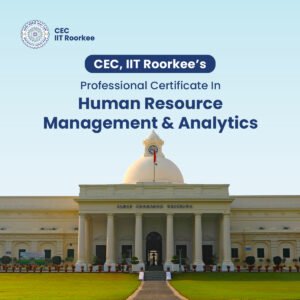What is Human Resource Management (HRM)?
To put it simply, HRM or Human Resource Management refers to the administration of human resources. Human resource management means to engage, improve as well as retain or preserve skilled and capable employees as well as to implement the activities essential to achieve organisational aims.
The main role of human resource management is to ensure adequate levels of productivity. This is done by making certain that people with the right skills occupy the right job positions in the organisation. One of the main objectives of human resource management is the successful utilisation of people to attain not just organisational goals but also individual goals as well.
The role of human resource management also expands to personnel functions like hiring as well as upholding employee information as well as payroll functions like retaining the employee information associated with employee payment.
The key objectives of human resource management should be to choose an approach that aligns and gels perfectly with the goals as well as the culture of an organisation, must be cost-effective, and must provide a positive employee experience. Major characteristics of human resource management cover Managerial, Advisory as well Human Resource Planning functions.
Now that you understand what is human resource management. Take a look at the key objectives of HRM.

Key Objectives of Human Resource Management
The basic and most important objective of human resource management is to handle an organisation’s workforce in the most effective manner possible. These include:
-
Keeping the Employee Motivation High
This is one of the most important objectives of human resource management. If an organisation wants to achieve its financial goals and wants high-quality results from its employees, then it needs to ensure that the employees give their best efforts. This can only be done by keeping the morale as well as motivation of the employees high. Ways to achieve this can include, giving employees the freedom to make suggestions as well as make decisions, providing rewards or compensation based on performance, and respecting their opinions and perspective.
-
Ensuring Seamless Team Integration
One of the major roles of human resource management is to ensure seamless integration between various teams as well as departments through effective communication. Open communication and successful team integration prove to be a big help in streamlining various operations and activities in the organisation. This in turn increases productivity while also enhancing efficiency.
-
Achieving Organisational Goals
Another crucial objective of human resource management is to ensure that the goals of the organisation are fulfilled through the correct utilisation of human resources. An effective human resource management strategy will always ensure organisational objectives are met in the most profitable manner possible. Organisational objectives can include:
- Workforce handling
- Staff requirements like hiring and onboarding
- Payroll management
- Social engagement
-
Training and Development
Without an effective and performing team, achieving the basic objectives of an organisation are impossible. For the workforce to perform at the optimum level, training, and development are a requirement. There is a sense of safety and motivation among employees when they receive proper training, as effective employment and the development of skills are highly dependent upon training practices. Training and development is also a crucial step to ensure workforce performance management.
-
Ensuring Successful Employee Retention
Keeping employees retained and motivated is one of the main objectives of human resource management. To retain employees, the staff must be engaged as an important part of achieving the company’s goals. Moreover, human resource management needs to ensure that the employee experience and grievances are properly addressed and attended to.
-
Data and Compliance
Functional and organisational objectives of human resource management also include managing compliance as well as employee data. One of the biggest responsibilities of human resource management is to manage payroll compliances and to also keep the company out of any penalties or fines.
These days automated software plays a key role in human resource management and to attain objectives. Moreover, human resource management is also responsible for following IRS guidelines and standards for effective employment of the company.
Conclusion
The key objectives of human resource management include ensuring that the goals and aspirations of an organisation are met successfully with the help of a capable, motivated, and satisfied workforce.
If you want to kick-start your professional journey in HRM then, the Professional Certificate in Human Resource Management and Analytics CEC, IIT Roorkee in association with Imarticus is the perfect choice for you.
Covering a wide range of topics, such as job analysis and design, strategies for hiring, selecting, and retaining employees, performance management and appraisal, training and development, etc., this program is meant to give participants the information and abilities they need to effectively manage human resources in the contemporary business environment
The post Key Objectives of Human Resource Management Explained appeared first on Finance, Tech & Analytics Career Resources | Imarticus Blog.